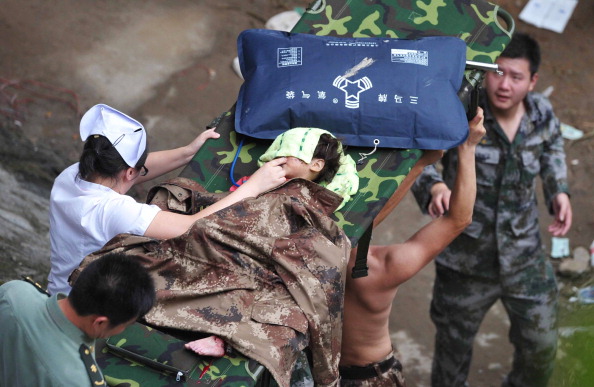On July 23, 2011, two high-speed trains traveling on the Yongtaiwen railway line collided near the eastern coastal city of Wenzhou killing 40 people and injuring 191. A week later, all traces of the train accident had disappeared from newspaper and television programmes, writes Amy Qin.

The case
On July 23, 2011, two high-speed trains traveling on the Yongtaiwen railway line collided near the eastern coastal city of Wenzhou. The two trains derailed each other and four cars fell off the viaduct, killing 40 people and injuring 191. Initial news of the accident was reported by passengers on the train via the popular microblogging service, Weibo, at least 40 minutes before the first report from the official Xinhua News Agency.
The accident was a serious setback to China’s plan to create the world’s largest high-speed network, which had long been trumpeted as a symbol of the nation’s technological and industrial progress. As such, media outlets received government instructions to report positive stories and to avoid questioning of the ministry of railways and the government. But as government officials fumbled through the recovery efforts, the majority of Chinese media, including state-owned mouthpieces, rejected the official orders and joined the growing chorus of Chinese bloggers and microbloggers in criticising the government’s handling of the accident.
Even the nationalist newspaper Global Times wrote, “Nowadays, almost all public events raise serious questions, but in the face of these, authorities often react reluctantly and ambiguously. Such an attitude causes more damage to the image of the government than the accidents themselves.” Media coverage of the accident intensified throughout the week, marked by detailed reporting of Premier Wen Jiabao’s July 29 visit to the disaster scene. This led Qian Gang, former managing editor of China’s Southern Weekend to declare July 29 as “a day of unprecedented openness for mainland Chinese media”.
But by the next morning, on July 30, all traces of the train accident had disappeared from newspapers and television programmes. Online discussions and searches for the term “July 23 train accident” had been censored. Strict instructions from propaganda officials had come in the night before, demanding that the Chinese media immediately cease reporting on the train accident.























reply report Report comment
This article particularly captivated my attention as I am myself writing a piece concerning this train crash. I agree that censoring may silence resentment but that does not mean that it is nonexistent. On the contrary it only generates more dissatisfaction and may even cause people to lose confidence in their government.
reply report Report comment
An opinion: the game of censorship has shifted in China.
The powers that be know they cannot fully suppress information they dislike. Instead, they seek to set the agenda. (For instance using the 五毛党 who are paid to post party-line comments, or the old fallback of editorials.)
It simply isn’t true that all traces of the accident disappeared on the Chinese language internet within the mainland. It’s just more inconvenient to find – which is the point.
Suppression of free speech comes in varied and hidden forms, self-censorship at the top. It mustn’t be simplified as an iron fist when its fingers are in many pies.